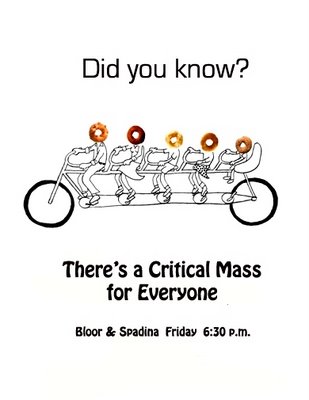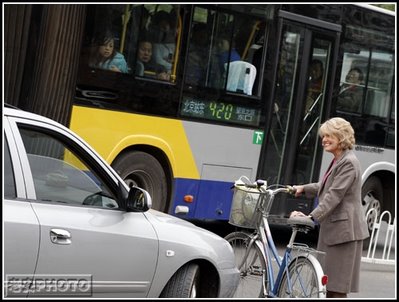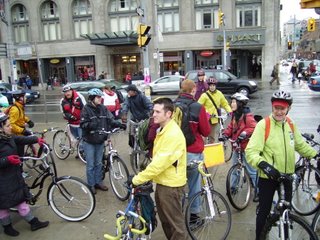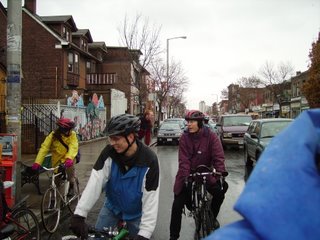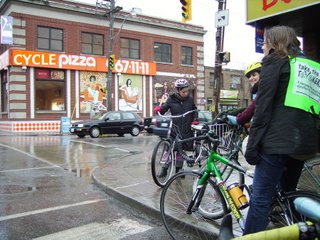
"I’ve always been a strong believer that bicycling is an essential part of Toronto’s transportation strategy. That’s why we have developed the Toronto Bike Plan which is a comprehensive cycling promotion strategy encompassing: bicycle friendly streets, a bikeway network, safety and education, bike parking, and promotion of combining cycling and transit.
One of the keys to promoting cycling is to give people a safe place to ride. Currently, Toronto has 90 KM of bike lanes, and the Bike Plan calls for 1000 KM to be built by 2011.
Under my leadership, the City of Toronto has aggressively promoted cycling as not just a method of transportation, but a way of life. Every year, I launch Bike Week which is a week-long series of events that promotes biking around Toronto. The City also issues a cycling newsletter, encourages residents to form local cycling committees, and has launched the “door prize” campaign to educated motorists and taxi drivers about the need to check for cyclists.
We’ve started a number of pilot projects -like putting bike racks on the front of buses, and increasing the amount of transit parking in front of subway stations - to encourage people to combine cycling with transit. In fact, next year the bicycle infrastructure budget will double to $ 6.2 million. For as long as I am Mayor of Toronto we will continue to pursue an aggressive bicycle promotion strategy.
When we talk about funding issues it is important to note the context in which they occur. Toronto has more people than Newfoundland, New Brunswick, Nova Scotia, Prince Edward Island, Yukon, the Northwest Territories and Nunavut put together – and yet we lack the powers and funding sources of even the smallest of these jurisdictions.
Toronto lacks support in critical areas. For example, in 2006 alone, the cost of delivering programs that the province once provided -- such as social services, the Ontario Drug Plan, affordable housing and transit -- cost the city an astonishing $731 million.
A recent Conference Board of Canada study determined that Toronto is underfunded by $1.1 billion a year. This is counter-productive – for our citizens, for our city and for our nation.
To unleash Toronto’s true economic potential and compete with the world’s greatest cities, I argue that just a small portion of the vast wealth Toronto generates for Canada should be invested back into the city."
Via the
survey conducted by
TCAT


















